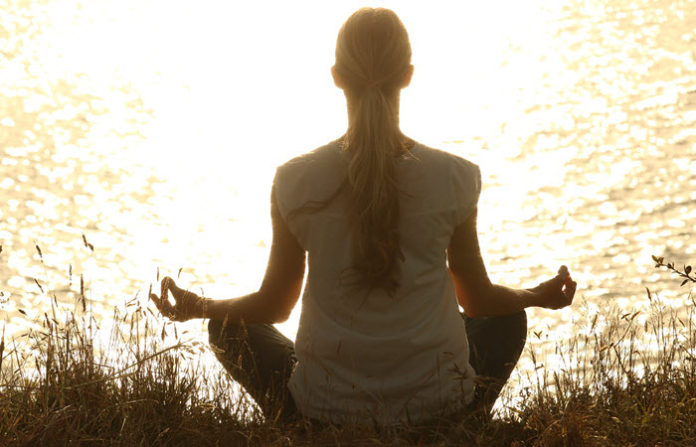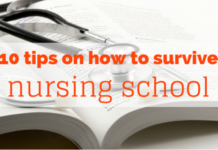Because of the nature of the work, nurses are often linked to illnesses and debilities. Although it’s true that nurses care for the sick, they actually aren’t just concerned about their patients’ physical weaknesses. They care about their patients as a whole, too.
To give you a clearer idea, here’s a quick rundown of what holistic nursing is.
A Brief Overview

Holistic nursing is focusing on the patient as a whole person. This means taking into account “mind-body-spirit-emotion-environment” into the whole equation. As a holistic nurse, one’s philosophy revolves around relating to, caring for, and connecting with your patient. In this type of nursing, a nurse is encouraged to incorporate spirituality, reflection and meditation, and self-care in their daily living.
If these things sound familiar to you- don’t feel surprised. Holistic nursing is actually rooted in the practice of Florence Nightingale, the person who pioneered modern nursing.
Other theories and models that influence the specialty include:
- Neuman’s Systems Model
- Parse’s Human Becoming Theory
- Erickson’s Modeling and Role Modeling Theory
- King’s Theory of Goal Attainment
- Watson’s Philosophy and Science of Caring
In promoting health and healing through this specialty, nurses use their skills, intuition, knowledge and prior experience. Apart from conventional nursing practice, they also utilize alternative medicine to meet their patients’ unique needs.
Holistic nurses can recommend natural herbs and supplements to help address their patients’ conditions. Despite encouraging alternative medicine, they do not, in any way, interfere with their patients’ existing treatment plan.
See Also: 20 Greatest Florence Nightingale Quotes For Nurses
A Step-By-Step Guide On How To Become A Holistic Nurse
To start your journey towards becoming a holistic nurse, you must first be a registered nurse by passing the National Council Licensure Examination. Once you have your license, you can start working as a holistic nurse.
Apart from having a BSN degree, you can also become a holistic nurse by completing an Associate of Science in Nursing program which generally takes up to two to three years to finish. You can also gain the opportunity to work as a holistic nurse by finishing a three-year diploma offered by certain hospitals. Take note that not all hospitals offer such course.
After working full-time for one year or around 2,000 hours within the last five years, you can apply for basic holistic nursing certification. Apart from that, you will also be required to complete 48 contact hours of holistic nursing continuing education. The process doesn’t end there as you’ll still need to renew your certificates every five years.
There are four certification examinations for this specialty. The list includes:
1. Advanced Practice Holistic Nurse, Board Certified
2. Holistic Nurse, Board Certified
3. Holistic Baccalaureate Nurse, Board Certified
4. Advanced Holistic Nurse, Board Certified
Duties and Responsibilities As A Holistic Nurse

Because holistic nurses are focused on healing patients as a whole, their duties can extend way beyond giving medications, assisting patients with ambulation and taking vital signs. Although they retain their interdependent and dependent functions, holistic nurses can also choose which treatment modalities to practice.
Their options include:
Energy medicine- It involves prayers and healing touches, such as Reiki.
Manipulative practices- Good examples are massage, acupressure and acupuncture.
Mind-body medicine- Nurses can engage their patients in hypnosis, art therapy or even meditation.
Biologically-based practices- Patients can be encouraged to try herbal therapy and nutritional counseling.
See Also: Top 5 Benefits of Meditation for Nurses
Apart from these modalities, holistic nurses are also expected to know how to use eye contact and ask how their patient genuinely feels. They must know when to laugh and how to use therapeutic touch to build a trusting relationship with their patients. They are expected to preserve their dignities, too. They need to ask their patients and get their opinion as to how they want to be helped.
Holistic nurses should learn how to ask and be accepting when it comes to cultural and religious differences. They have to be sensitive about their patients’ values as well. Promoting their patients’ emotional, psychological and spiritual healing can greatly enhance their physical well-being.
Career Options for Holistic Nurses

Because of what they can do, holistic nurses can work in a wide range of settings. They can apply in clinics, birthing centers and hospitals that offer integrated care departments.
They can also work in home settings or set up their own licensed practices. In case you have a master’s or a doctoral degree, you’ll be able to work as a midwife or even a nurse anesthetist.
The work requires taking night shifts, working during holidays and weekends. Some facilities may require nurses to take on 24-hour shift to ensure their patients’ continuity of care. If you feel that these types of shifts won’t work for you, you can try working in physician’s offices where the schedule is more regular and predictable. You’ll be expected to work during business hours.
Holistic nurses can also work in social assistance and government agencies. They can apply as a school nurse, too.
Salary of A Holistic Nurse
Holistic nursing is a specialty. This means that your experience, as well as education, can affect the amount of money you get in exchange for your hard work. Even your location and size of company matter, too.
Generally, holistic nurses have an average income of $67,000. Holistic nurses working in government agencies tend to have a higher rate at $72,000 annually while working in residential care facilities come with the lowest salary at $60,000 on average.
As for job outlook, similar with other nursing specialties, the demand for holistic nursing is expected to continuously increase. It has a predicted growth rate of 19% by year 2020- or probably higher, considering that people are now more interested in alternative methods of healing and wellness.
See Also: Top 10 Highest Paying Cities for Nurses
Conclusion
Nursing is a tough and challenging profession and holistic nursing is no exception. It can be physically, mentally and emotionally draining at times. For some nurses, the challenges can be too extreme to the point that they feel that they have no other option- except to let go of their profession.
Despite these drawbacks, nursing is still a rewarding job. Apart from enriching your patients’ lives, it will also enable you to create great memories and experiences that can remind you of why you chose to be a holistic nurse in the first place.



















